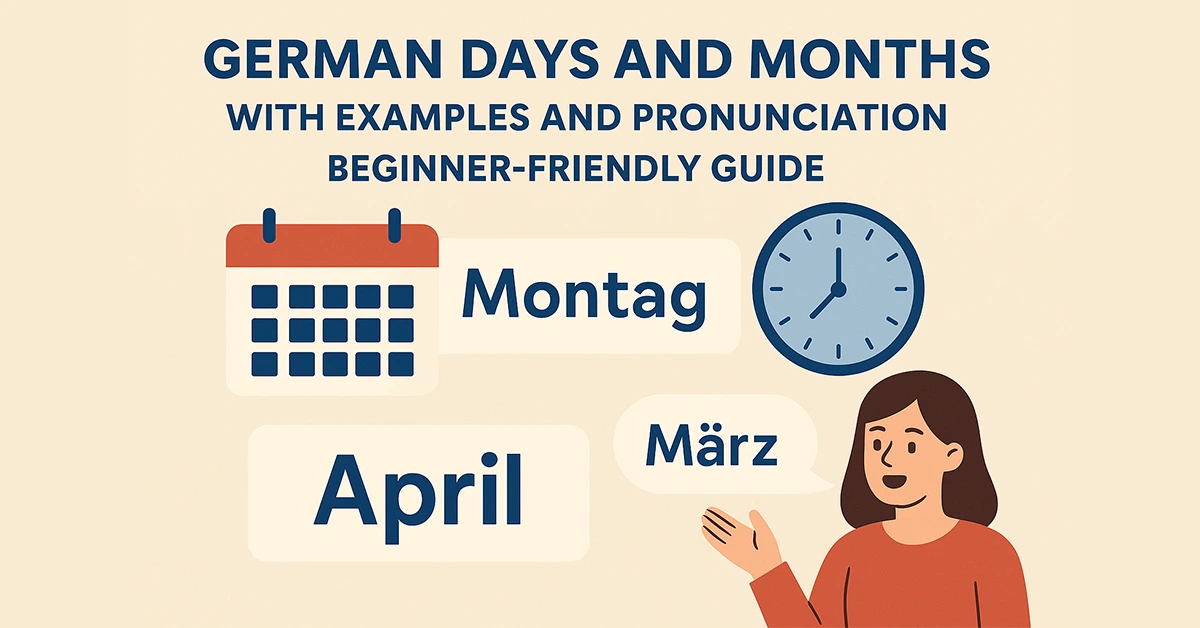Beginner German lessons
-

German Days and Months – Examples and Easy Pronunciation
Learn all German days of the week and months of the year with examples, English translations, and easy pronunciation. Perfect for A1-A2 beginners!

Learn all German days of the week and months of the year with examples, English translations, and easy pronunciation. Perfect for A1-A2 beginners!